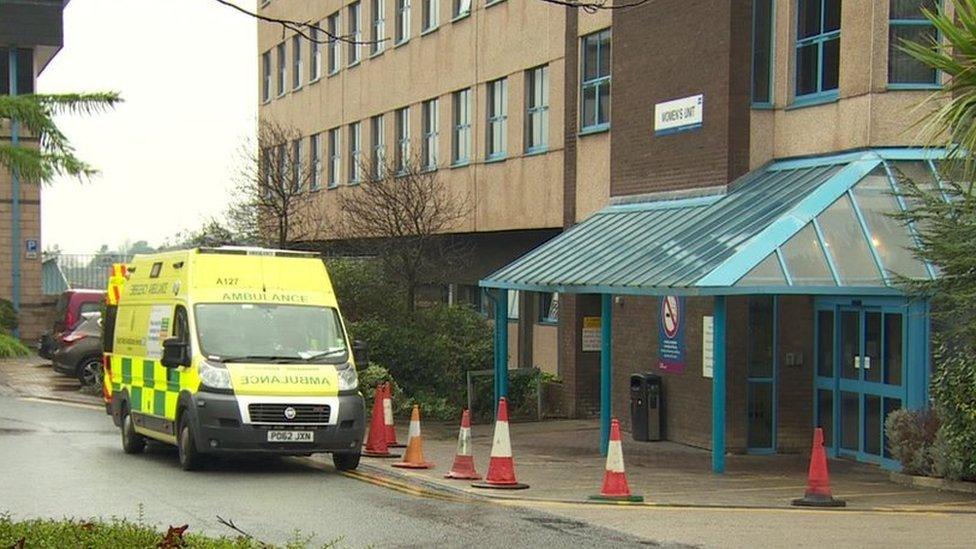Covid: Greater Manchester hospitals cancel surgery as NHS pressures mount
- Published
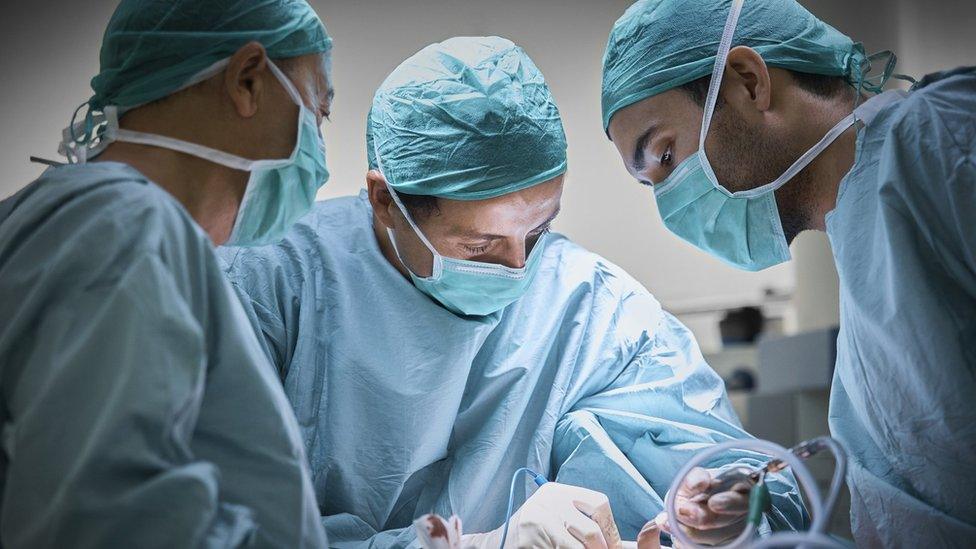
Concerns have been raised about NHS staff being left exhausted
Some non-urgent surgery is being halted at Greater Manchester hospitals as the "rising impact" of Covid-19 and staffing shortages continues to affect NHS trusts.
More than 20 English NHS trusts have declared critical incidents, according to Downing Street.
Two trusts in Bristol declared the highest level of alert earlier.
Health bosses in Greater Manchester said about 15% of their workforce were either ill with Covid or isolating.
Health minister Gillian Keegan said the government knew "this was going to be one of the most pressurised winters" for the NHS and that extra investment had been given to help the service cope.
She said declaring critical incidents was part of "our NHS contingency and resilience plans" that are "tried and tested" and in place every winter.
Greater Manchester Health and Social Care Partnership said the decision affecting 17 hospitals was "a temporary measure" and that cancer care, cardiac and vascular surgery and transplantation would not be affected.
But it said Covid admissions were also rising sharply, with more than one in five patients in some of the region's hospitals testing positive.
They said the "challenges may get worse" in the next fortnight.
Fiona Noden, chief executive of Bolton NHS Foundation Trust, said the suspension of surgery had been "a very difficult decision" which was taken to ensure "we can keep people safe, maintain infection control, deploy staff where they are needed most [and] keep looking after people who need urgent and emergency care".
Greater Manchester Mayor Andy Burnham said social care was also hit hard by staff absences with around half of care homes in the region are unable to accept new residents.
He said there were about 650 people in hospital beds who are medically fit to be discharged but a shortage of care homes to take them.
If you can't see the lookup, click here
Chris Hopson, the chief executive of NHS Providers, said a critical incident was "an indication of very serious pressure" at a trust which may "not be able to provide" a range of priority services.
Other NHS trusts that have announced critical incidents since Christmas across England include:
Norfolk and Waveney's care system has been placed on the highest state of alert and the county's biggest hospital said its number of patients with Covid had almost doubled since Friday
The University Hospitals of Morecambe Bay NHS Trust, which serves patients in Lancashire and south Cumbria, said some non-urgent operations and procedures had been suspended
Blackpool Teaching Hospitals NHS Foundation Trust's chief operating officer said there was "very high demand" for services and "long waits" in emergency and urgency care departments
In Wiltshire, the Great Western Hospitals NHS Foundation Trust declared a critical incident after experiencing "sustained high levels of demand" and concerns over the "availability of beds"
United Lincolnshire Hospitals NHS Trust's medical director said on Monday there were "significant staffing pressures" due to Covid-related absences, though essential services were still operating
A critical incident was also declared at Plymouth's Derriford hospital with 99 positive cases there and at its three community hospitals
Meanwhile, the number of hospital staff off sick across the North East and north Cumbria has increased 135% due to Covid since 24 December
Elsewhere, North East Ambulance Service has asked people with suspected strokes or heart attacks to get a lift to hospital because of staff shortages.
Patients were waiting on average for an hour to be seen and medical director Dr Mathew Beattie said there had been an 80% increase in Covid-related absences over the last six days.
Ms Keegan asked NHS England to review the situation and said people could "rely on getting to hospital if you are in an emergency like a heart attack".


The NHS is always under pressure at this time of year.
In previous winters critical incidents have been declared and non-urgent surgery cancelled. Compromised care is nothing new.
That's not to say the health service isn't facing a unique set of pressures this year.
Admissions for Covid are already twice what would normally be seen for all types of respiratory infections. Staff absences are also double what they traditionally would be. And on both measures the situation is getting worse.
What will be crucial is how much worse things get. The hope is infections will peak soon - and pressure on hospitals quickly afterwards.
Much though depends on whether there is more spread among older age groups, who are at most risk of serious illness.
Ministers are banking on the boosters limiting this. It will be at least a week maybe two before we have the answer.

Meanwhile, Covid testing rules are to be eased for people without symptoms, who will no longer need to confirm a positive lateral flow test with a PCR.
The UK Health Security Agency said the rule change will apply from 11 January and apply to England only for now.
Matthew Taylor, chief executive of the NHS Confederation, said: "In many parts of the health service, we are currently in a state of crisis.
"Some hospitals are making urgent calls to exhausted staff to give up rest days and leave to enable them to sustain core services.
"Community and social care services, which were already massively overstretched, are at breaking point. In many areas, ambulance services are unable to meet their target response times."
On Tuesday, Boris Johnson said he hoped England could "ride out" the current wave without further restrictions but acknowledged parts of the NHS would feel "temporarily overwhelmed".

Has your surgery been postponed? Share your experiences haveyoursay@bbc.co.uk, external.
Please include a contact number if you are willing to speak to a BBC journalist. You can also get in touch in the following ways:
WhatsApp: +44 7756 165803
Tweet: @BBC_HaveYourSay, external
Please read our terms & conditions and privacy policy
If you are reading this page and can't see the form you will need to visit the mobile version of the BBC website to submit your question or comment or you can email us at HaveYourSay@bbc.co.uk, external. Please include your name, age and location with any submission.

- Published5 January 2022

- Published5 January 2022
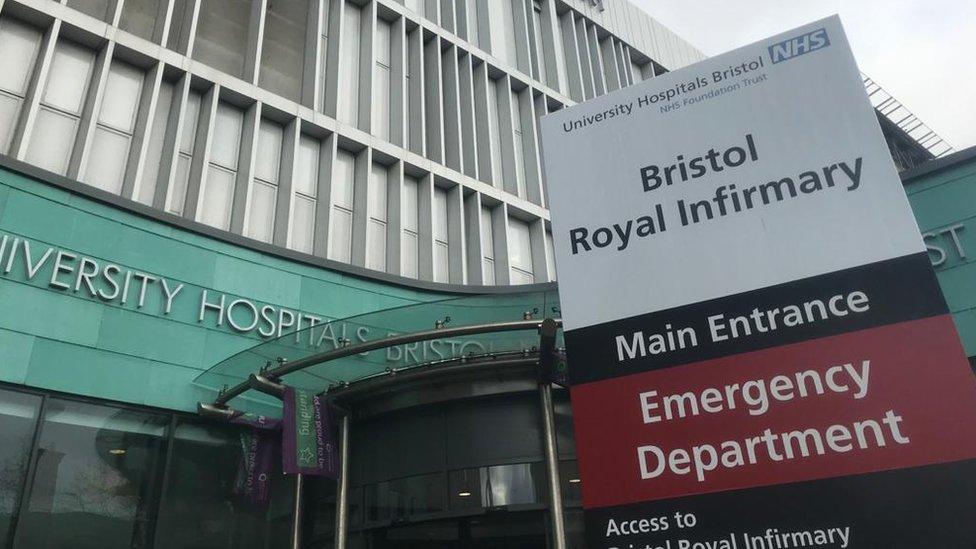
- Published5 January 2022
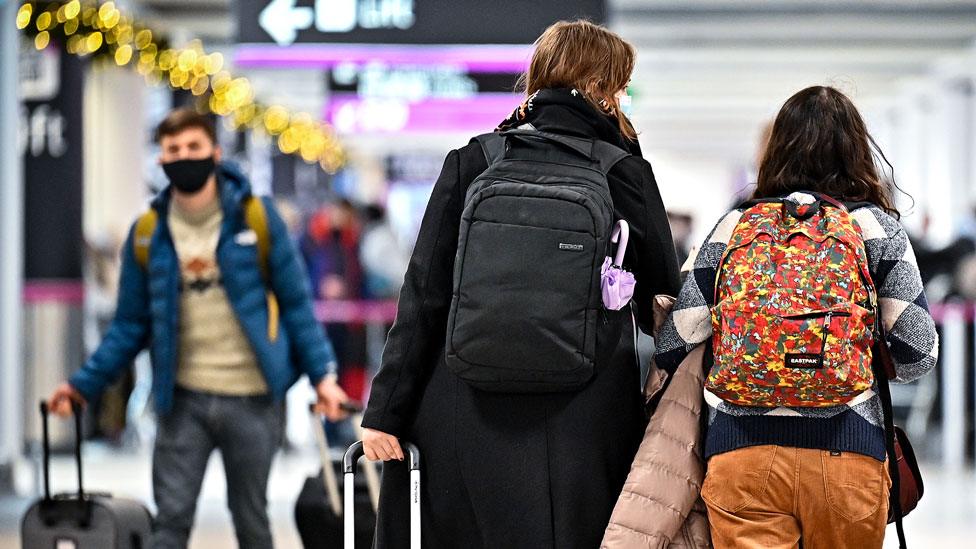
- Published4 January 2022
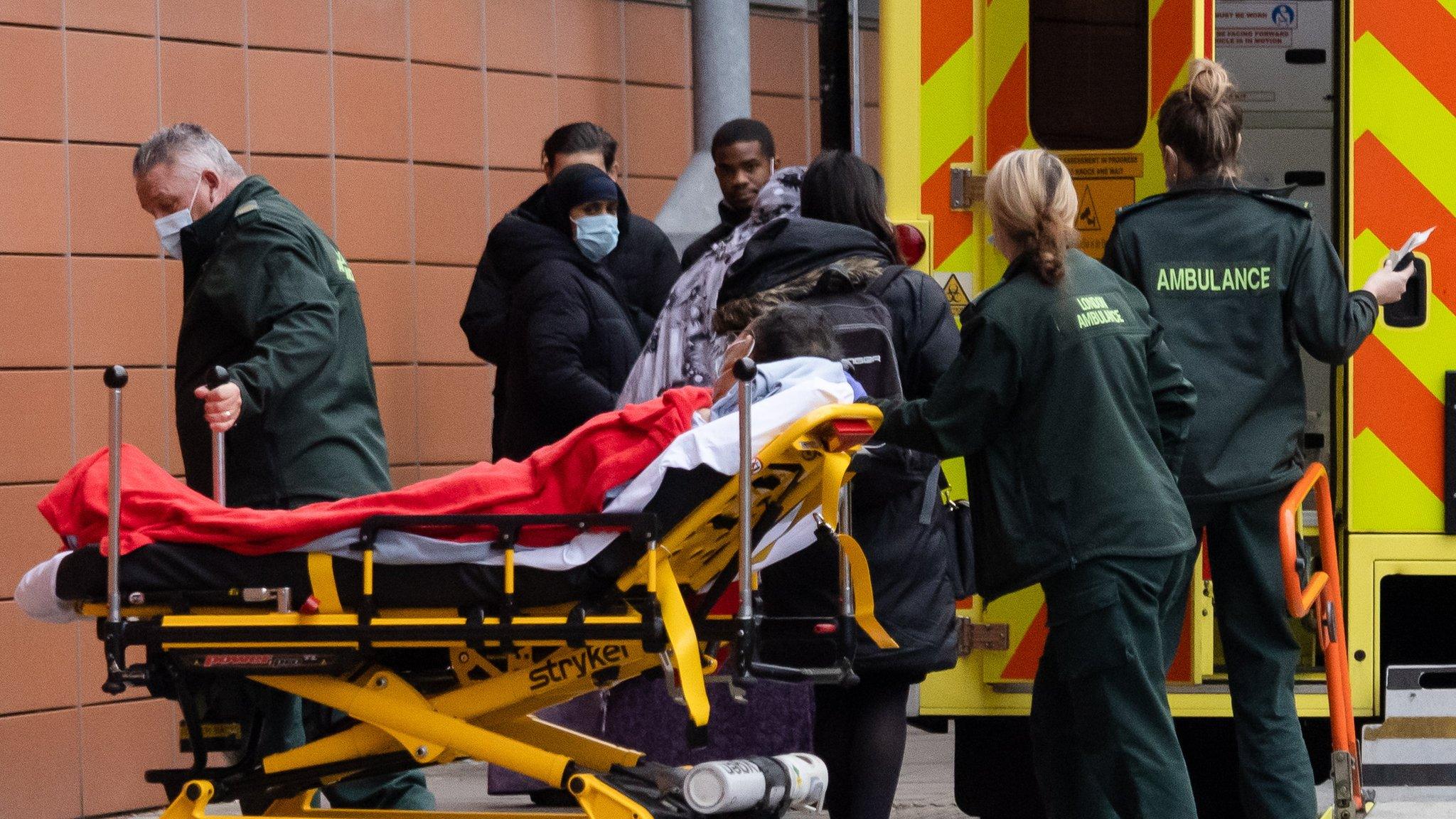
- Published4 January 2022
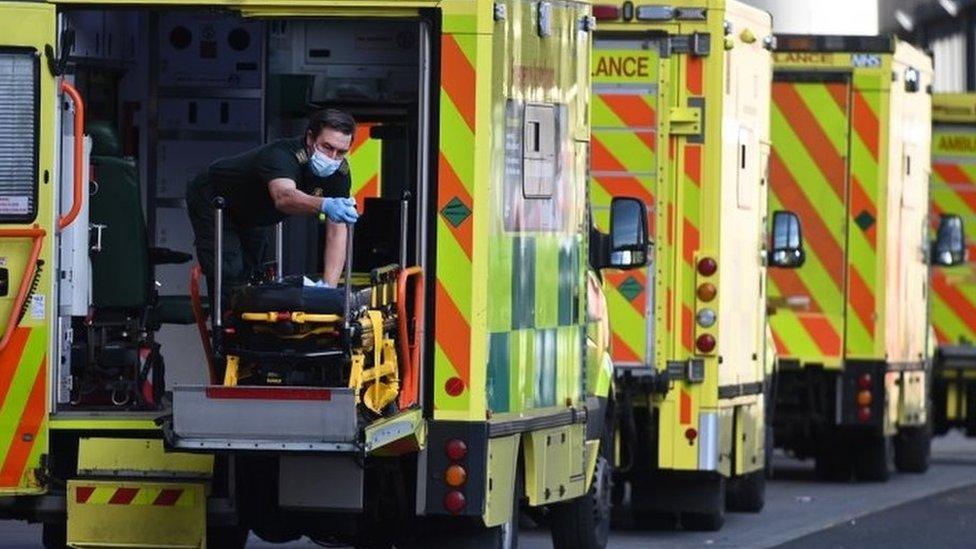
- Published4 January 2022
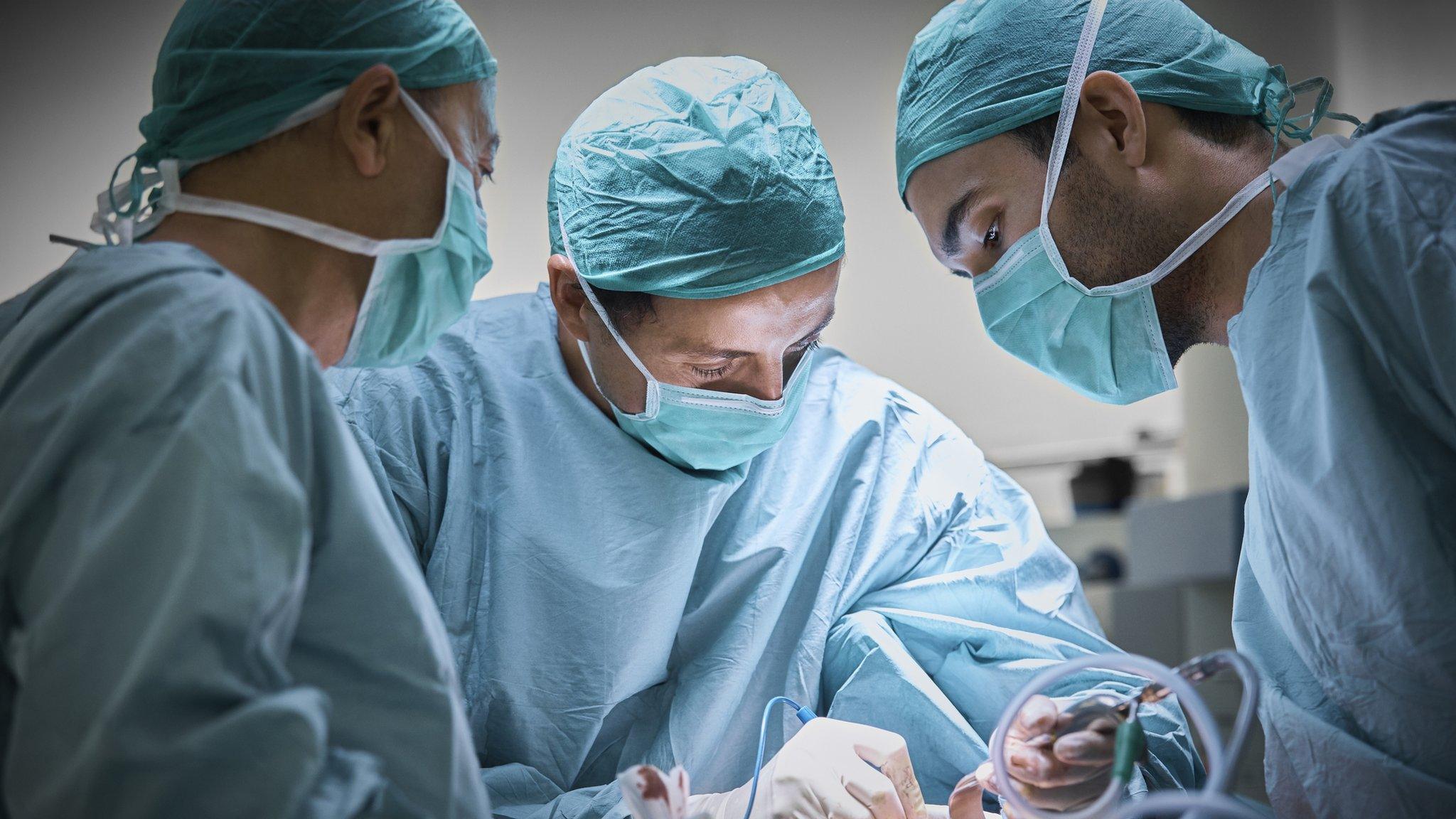
- Published4 January 2022
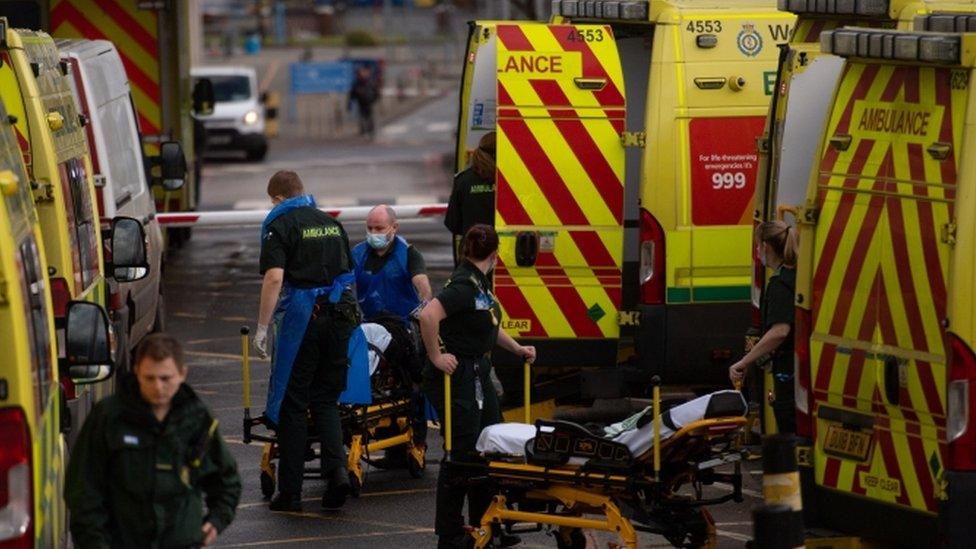
- Published4 January 2022
- Published4 January 2022
